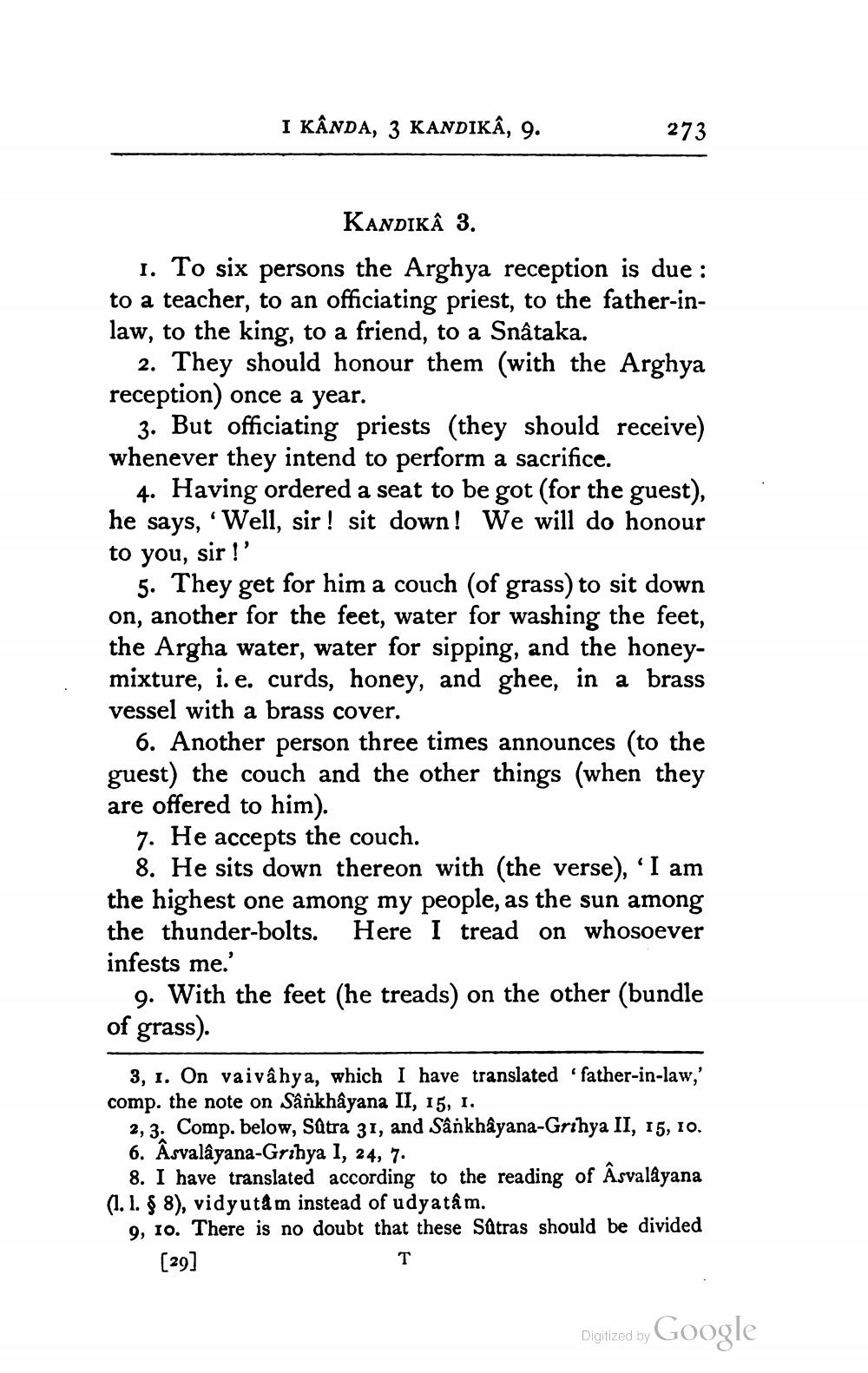________________
I KÂNDA, 3 KANDIKÂ, 9.
273
KANDIKÂ 3. 1. To six persons the Arghya reception is due : to a teacher, to an officiating priest, to the father-inlaw, to the king, to a friend, to a Snâtaka.
2. They should honour them (with the Arghya reception) once a year.
3. But officiating priests (they should receive) whenever they intend to perform a sacrifice.
4. Having ordered a seat to be got (for the guest), he says, 'Well, sir! sit down! We will do honour to you, sir !'
5. They get for him a couch (of grass) to sit down on, another for the feet, water for washing the feet, the Argha water, water for sipping, and the honeymixture, i.e. curds, honey, and ghee, in a brass vessel with a brass cover.
6. Another person three times announces (to the guest) the couch and the other things (when they are offered to him).
7. He accepts the couch.
8. He sits down thereon with (the verse), 'I am the highest one among my people, as the sun among the thunder-bolts. Here I tread on whosoever infests me.'
9. With the feet (he treads) on the other (bundle of grass).
3, 1. On vaivahya, which I have translated 'father-in-law,' comp. the note on Sânkhayana II, 15, 1.
2, 3. Comp. below, Satra 31, and Sânkhayana-Grıhya II, 15, 10. 6. Asvalâyana-Grihya I, 24, 7.
8. I have translated according to the reading of Asvaldyana (1. 1. $ 8), vidyuta m instead of udyatâm. 9, 10. There is no doubt that these Sätras should be divided
[29]
Digitized by Google




